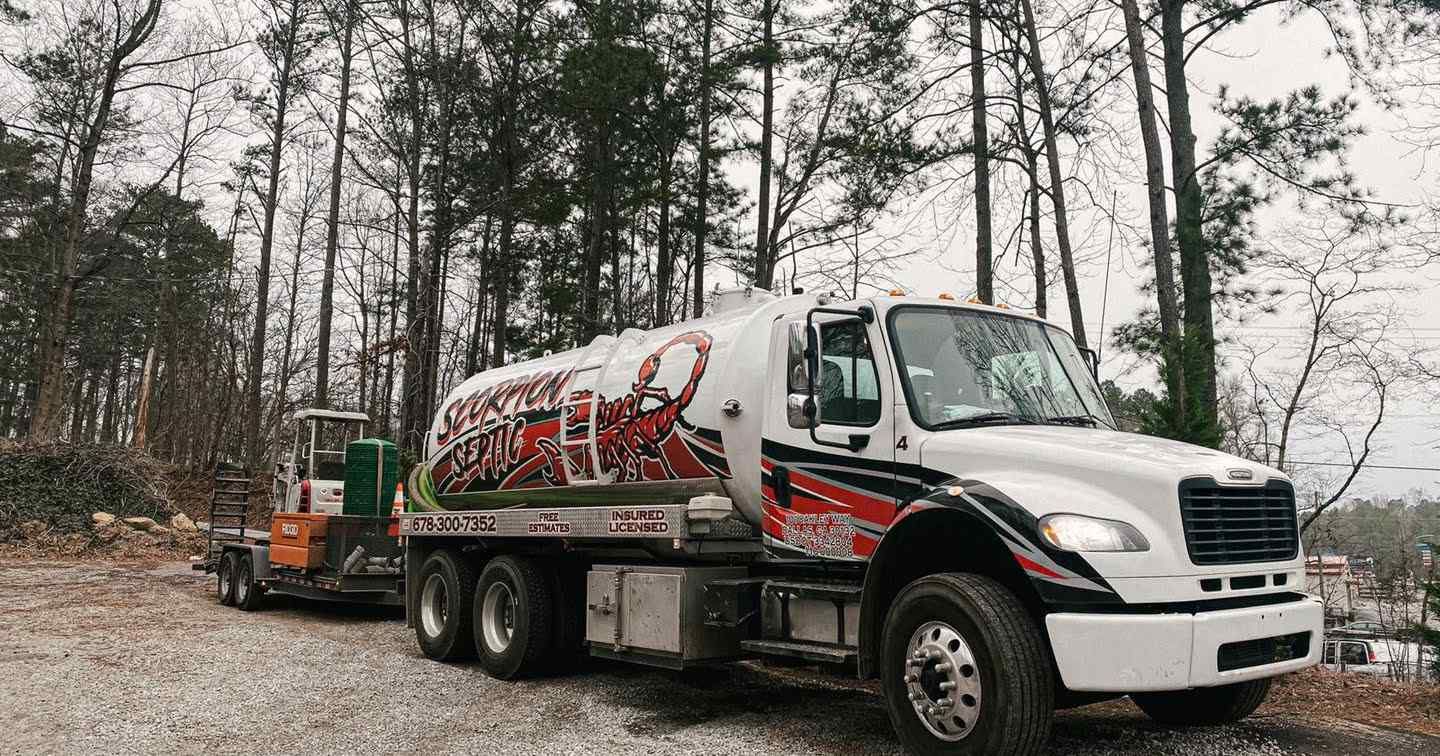It's summer: the kids are out of school, the season is in full swing, packed with sunny days, and blooming flowers. With summer activities, like lawn care, pool maintenance, and beloved water balloon battles, summer also means putting your septic tank to work.
While often at the bottom of any summer 'to-do list' septic tanks are often overlooked until you get a whiff of a funky odor. Don't wait till guests complain about the smell of your home, instead follow our seasonal septic maintenance tips and learn how to keep your septic tank working properly all year-round!

Do High Temps Affect Your Septic Tank
Have you ever wondered, 'Do high temps affect my septic system?' Probably not. Unless you're a plumber. But for those curious Cathys and detective Dans out there, the answer is a resounding yes. Read on to learn more about how high summer temperatures can affect your septic system.
High Heat
When we reach extremely hot temperatures, biological processes in your septic tank tend to speed up, leading to an increase in the production of gases, which can, in turn, emit funky smells all throughout your house. The reason for this is that your septic tank is home to millions of different types of bacteria that rely on your waste system, feasting on it, and breaking down most of the scent of any raw sewage in your tank. As temperatures increase, less oxygen is found in your tank, which is when it starts to get a little stinky for you and the family.
Mold Growth
Atlanta and the surrounding areas are generally considered to be humid places, which isn't necessarily a bad thing. Except in the summer, when humidity is high, and in the right conditions, it can lead to the growth of mold in septic tanks and pipes. High levels of humidity can provide the necessary conditions for mold to thrive, often leading to the corrosion of pipes, plumbing systems, and your septic tank.
Septic System Overload!
It's always important to be mindful of how much water you use, but especially during the summer months. It is no secret that when it's hot out, people tend to use more water. Whether it's to stay hydrated or cool down with a cold shower, excessive water use can easily overload a septic tank, often leading to backups and sometimes even system failure. It may be wise to pump your tank before the summer heat in order to prevent costly repairs and full on system failures later down the road.
A Guide to a Septic Tank's Maintenance
An increased workload for your septic tank is inevitable during the summer months. It's simply bound to happen. What you could do though, is follow our maintenance guidelines to keep your septic tank in check all summer long! With a few simple tips your septic tank will be up and running ready to work overtime!
Schedule Scorpion Septic Services
The easiest way to maintain a long-lasting septic tank is to schedule routine inspections
from a licensed professional. At Scorpion Septic we offer affordable and dependable septic tank care services that ensure everything is in order! During a regular inspection you can expect our plumbing professionals to look for indications of severe wear and tear and any signs of damage.
Once we've assessed the overall health of your septic tank, we will offer our expert opinions on how to go about solving any potential issues, as well as provide a comprehensive preventative maintenance program to keep your septic in excellent condition. It is recommended that homeowners inspect their septic tank every 1-3 years as doing so can prevent small issues from piling up into big problems!
Pump It Up!
When customers ask 'how to keep a septic tank working' we usually tell 'em: you've got to pump your tank! This refers to clearing out septic tanks by removing any solids and sludge from inside the tank. This is key in maintaining a healthy septic tank during the summer months, as doing so prevents sewage backups and keeps the drain field unclogged. While pumping your septic tank is crucial to prolonging its life, it also helps prevent pesky odors from surfacing, and protects the environment from untreated sewage spills making its way into the soil. We typically recommend pumping your tank every 3-5 years, but can be done more frequently if you've got an older model.
Watch Your Water Usage
A good way to prevent excessive water use is to try and conserve water whenever you can. An easy way to do this is by taking shorter showers, turning the tap off when brushing your teeth, and even waiting for a full load of dishes to run the dishwasher. If you're really worried, a good step you can take is installing water-saving appliances such as low-flow showerheads, faucet aerators, and high-efficiency dishwashers and washing machines.
Practice Proper Waste Disposal
While it may seem intuitive, it's often overlooked how important it is to watch what you flush or pour down the drain. We get it, it's so simple to just pour that extra bit of bacon grease down the drain, but that convenience we crave, turns out to be anything but convenient. When you pour oil down the drain, even if you think it's getting washed away by hot water and soap, it can still re-solidify once it cools down. This can cause unnecessary problems that your pipes and septic system won't be able to handle. Same goes for non-degradable objects and harsh chemicals you may improperly dispose of. If you're unsure simply toss it in the trash and save yourself trouble—and money.
Call for Expert Help
Scorpion Septic prides itself on providing Atlanta and surrounding areas with affordable and dependable septic system services. With summer fast approaching, you need to be prepared for an increased workload for your septic system, so as soon as you notice the first warning signs, give us a call. Plumbing problems can be a world of trouble, so don't tackle them alone, and enlist the help of the pros!

